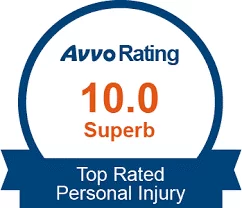Regardless of who is at fault in any vehicle accident, the first priority is to make sure those who are injured receive proper medical care. Once your spouse has left the accident scene and arrives at the hospital, what can you do at the hospital to provide the necessary support while ensuring they get the best possible care?
Dealing with Doctors and the Treatment Plan
Despite the best intentions and skills of hospital personnel, mistakes often occur. Thus, your first function in the hospital is to be an advocate for your spouse’s health as they undergo treatment—whether it’s surgery, a blood transfusion or other procedure—to supervise where they perhaps cannot. Here are some do’s and don’ts to help:
- DO get involved with medical discussions. When the doctor examines your spouse or discusses their condition, ask questions your spouse might not think to ask—or may be unable to ask. Make sure you’re fully aware of their situation, prognosis, medicines and their treatment options.
- DON’T be belligerent or combative with hospital staff. They are professionals tasked with your wife’s or husband’s care, and they’re often doing so under adverse conditions. Expressing hostility only increases the risk of mistakes. Don’t be afraid to ask questions or point out inconsistencies, but do so respectfully.
- DO double-check medications, dosages and treatment schedules. Inform yourself regarding which treatments or medications are to be administered, when and in what quantity. Adverse drug events are the most common medical errors [https://www.beckershospitalreview.com/quality/9-most-common-medical-errors.html] occurring in hospitals. They can happen due to everything from fatigue to shift changes to bad handwriting. Be the person who stays on top of your spouse’s medication list.
Handling Other Details
Aside from watching over your spouse’s care, you’ve got a slew of other life details to consider. Here are some tips for handling these issues:
- Coordinate with family and friends. Not everyone needs to hang out at the hospital all the time. Ask people you know and trust to handle family needs, such as picking up the kids, collecting mail, and feeding the dog.
- Contact employers, schools, etc. If your spouse works, let their employer know what happened and why they aren’t at work. Do the same for your employer. Contact your children’s schools to advise them of possible absences and notify them who will be picking up the kids. Contact your house of worship, if you have one, so they can provide support as needed.
- Obtain and keep copies of all documentation—including medical paperwork, invoices, receipts for meals and sundries, etc.
- Don’t forget to rest. You may feel the impulse to be on watch 24/7, but it won’t take long before you burn out. Pace yourself, stop for meals, and get another family member to sit by the bedside once in a while. Get some sleep if you can.
At Greathouse Law, our personal injury attorneys know how to represent your spouse’s interests to get them the compensation needed for a full recovery. To learn more, call us at 678-310-2827 for a free evaluation.


